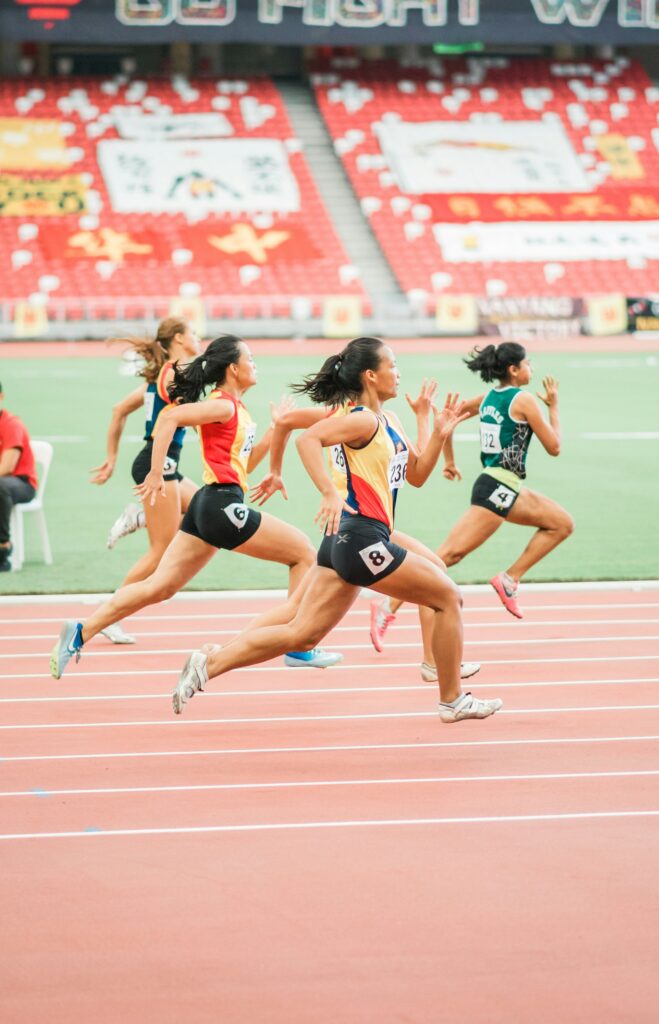Athletics, also known as track and field, is a collection of sporting events that involve competitive running, jumping, throwing, and walking. It is one of the oldest forms of organized sports, with roots dating back to ancient Greek civilization. Today, athletic holds a prominent place in the world of sports, captivating audiences with its display of speed, strength, and skill.
History of Athletics
The origins of athletics can be traced back to the ancient Olympic Games, where running, jumping, and throwing competitions were held as early as 776 BCE. Over the centuries, athletics evolved from a simple test of physical prowess to a highly organized and regulated sport. Modern athletic encompasses a wide range of events, from sprints to marathons, from high jumps to discus throws.
Different Types of Athletics Events
Athletics events are categorized into three main types: track events, field events, and combined events. Track events take place on a running track and include sprints, middle-distance races, and relays. Field events involve jumping and throwing activities, such as the long jump, high jump, shot put, and javelin throw. Combined events, such as the decathlon and heptathlon, require athletes to compete in multiple disciplines over two days.
Benefits of Participating in Athletics
Participating in athletics offers numerous benefits for individuals of all ages. From improving physical fitness and mental well-being to fostering social connections and teamwork, athletic plays a vital role in promoting a healthy and active lifestyle. Additionally, the competitive nature of athletics instills valuable traits such as discipline, perseverance, and resilience.
Training and Preparation for Athletics
Success in athletic requires dedication, discipline, and proper training. Athletes undergo rigorous training regimens to improve their speed, strength, and endurance. Training methods vary depending on the specific event and the athlete’s individual needs. In addition to physical training, athletes must pay attention to their nutrition, hydration, and rest to ensure optimal performance.
Famous Athletes in History
Throughout history, numerous athletes have left their mark on the world of athletic with their exceptional talent and achievements. From Jesse Owens, who defied racial prejudice to win four gold medals at the 1936 Berlin Olympics, to Usain Bolt, the fastest man in history, who shattered world records with his lightning speed, and Jackie Joyner-Kersee, a multi-event champion known for her versatility and dominance.
Athletics and Olympics
Athletics has always been a cornerstone of the Olympic Games, dating back to its ancient origins. Today, athletic remains one of the most anticipated and watched events at the Olympics, showcasing the world’s best athletes competing for glory on the global stage. Memorable moments in Olympic athletics, such as Bob Beamon’s record-breaking long jump in 1968 and Michael Johnson’s double gold in the 200m and 400m in 1996, have become legendary.
Athletics in Schools and Colleges
Athletics programs play a crucial role in the educational system, providing students with opportunities to develop physical fitness, teamwork, and leadership skills. Many schools and colleges offer athletic scholarships to talented athletes, enabling them to pursue higher education while continuing to compete at a high level.
Challenges Faced by Athletes
Despite the rewards of athletic competition, athletes face numerous challenges, including the risk of injuries, the pressure to perform, and the demands of balancing athletic with academics or other commitments. Injuries, in particular, can be a significant setback for athletes, requiring time and rehabilitation to recover fully.
Athletics as a Professional Career
For some athletes, athletics becomes more than just a hobby or a passion—it becomes a profession. Professional athletes compete at the highest levels of their sport, earning recognition, fame, and financial rewards. However, the road to success in professional athletic is fraught with challenges, including fierce competition, injuries, and the constant pressure to perform.
Future of Athletics
As technology continues to advance, the future of athletics holds exciting possibilities. From innovations in training equipment and sports science to advancements in performance-tracking technology and biomechanics, athletes are constantly pushing the boundaries of human potential. Additionally, the globalization of athletic has opened up new opportunities for athletes from around the world to compete and excel on the international stage.
Impact of Athletics on Society
Athletics has a profound impact on society, inspiring individuals to pursue their dreams and overcome obstacles. Athletes serve as role models and ambassadors, breaking barriers and stereotypes and promoting diversity and inclusion. Through their achievements and dedication, athletes inspire future generations to strive for excellence and pursue their passions.
Conclusion
Athletics is more than just a sport—it is a testament to the human spirit and a celebration of physical excellence. Whether competing on the world stage or participating for personal enjoyment, athletes embody the values of determination, resilience, and perseverance. As we look to the future, the legacy of athletics will continue to inspire and uplift individuals around the globe.

